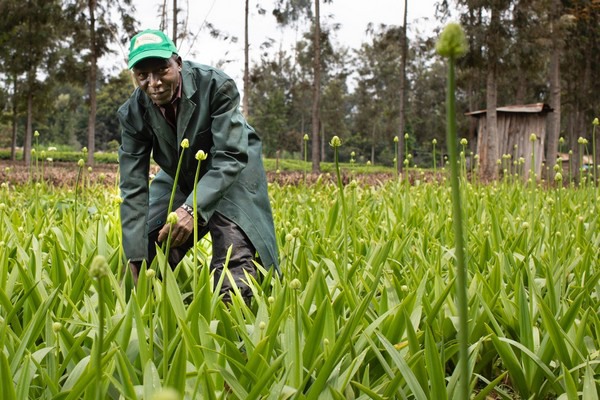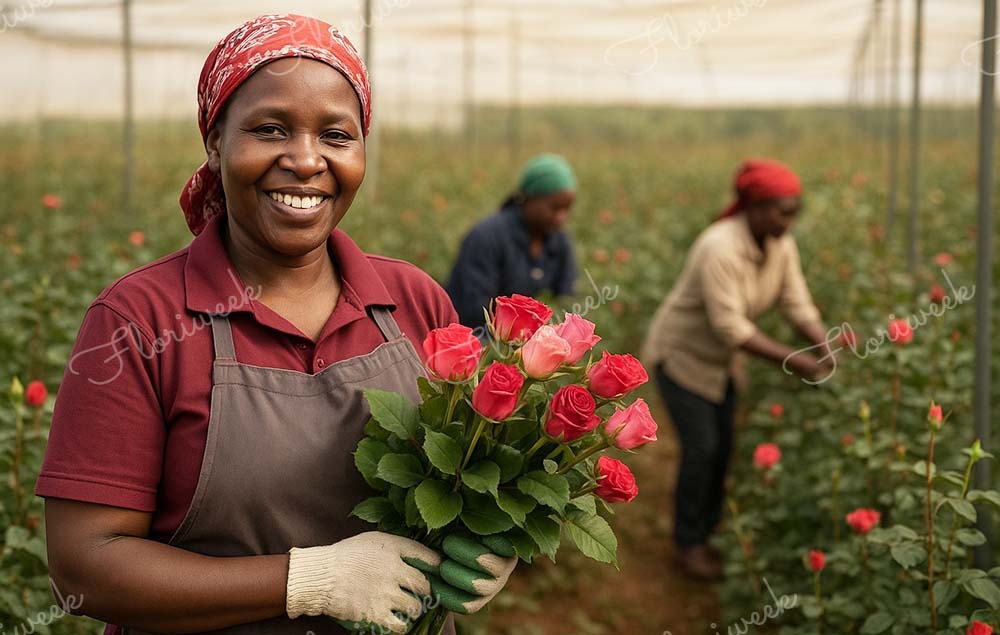
Bʏ Mᴀʀʏ Mᴡᴇɴᴅᴇ

Kenya’s floriculture industry is a globally significant sector, employing over 350,000 people directly and supporting millions indirectly. The nation’s flower exports rank among its top foreign exchange earners, with the sector continuously striving for sustainability through certifications and standards designed to promote responsible and environmentally sound production practices.
While medium and large-scale flower farms have increasingly embraced sustainability certifications such as GlobalGAP and the Kenya Flower Council’s Flowers and Ornamentals Sustainability Standard (FOSS), small-scale flower growers often face substantial barriers that hinder their participation in these certification schemes. As of 2025, these barriers persist and continue to limit small-scale growers’ access to lucrative markets demanding certified sustainable products.
High Certification Costs and Associated Financial Barriers
One of the primary challenges small-scale flower growers encounter is the high cost of sustainability certification. Certification programs typically require payment of application, audit, and annual renewal fees, which are often scaled to farm size but remain prohibitively expensive for many smallholders. Alongside these fees are costs related to upgrading farm infrastructure, adopting specialized environmental management practices, and maintaining records as part of compliance. Given that small-scale growers typically operate with narrow profit margins and limited access to formal credit or finance, meeting these financial demands is a major hurdle.
This cost barrier is compounded by Kenya’s broader fiscal environment, affecting the floriculture sector. Higher taxation on inputs such as fertilizers, chemicals, and machinery, combined with increased export levies, raises operational costs and strains small growers’ ability to invest in certification and sustainability initiatives. This economic pressure has led some growers and sector representatives to caution against policy measures that risk slowing investment and growth in a sector crucial to rural livelihoods and national exports.
Complexity and Multiplicity of Certification Standards
Another major deterrent for small-scale growers is the increasing complexity and proliferation of private sector standards governing sustainable flower production. International buyers often mandate compliance with multiple overlapping certification schemes, including GlobalGAP, Fairtrade, Rainforest Alliance, MPS, and supermarket-specific standards like Tesco’s Nurture. Navigating this requires expertise in the standards’ environmental, social, and safety criteria, extensive recordkeeping, and frequent audits.
For growers lacking specialized knowledge or support, this creates a bureaucratic burden. Many smallholders operate informally or with limited managerial capacity, making it difficult to consistently meet the diverse demands of certification bodies. This complexity increases the risk of non-compliance, penalties, or exclusion from key export supply chains.
Limited Awareness, Knowledge, and Capacity
Small-scale flower farms often suffer from limited access to information and training regarding sustainability certification requirements and benefits. While organizations such as the Kenya Flower Council and development partners offer training and awareness programs, these often prioritize medium and large exporters with more resources and infrastructure. Smallholders in remote or marginalized communities may lack exposure to capacity-building initiatives and technical extension services needed to implement best practices in integrated pest management, efficient water use, labour standards, and environmental stewardship.
This knowledge gap restricts the ability of small-scale growers to transition from conventional to certified practices or to sustain certification once attained. Without robust institutional support, smallholders are less competitive in global markets where sustainability credentials increasingly influence buyer sourcing decisions.
Financing Constraints and Market Access Challenges
Financing remains a critical bottleneck for small-scale growers aiming to invest in sustainable production systems and certification processes. Most small farmers rely on internally generated cash flows or informal credit sources, which limits their ability to finance the upfront costs of certification, infrastructure upgrades, or the adoption of green technologies like renewable energy or precision irrigation.
Furthermore, even where certification is achieved, small-scale growers often struggle with market access and differentiation. Buyers may aggregate flowers from uncertified farms or larger certified farms, reducing the price premium for certified smallholder flowers or bypassing them entirely. This market dynamic diminishes incentives for small-scale producers to pursue certification, as the cost-benefit ratio becomes unfavourable.
Regulatory and Phytosanitary Challenges
Kenya’s floriculture exports face increasingly stringent regulatory and phytosanitary requirements, especially from key markets such as the European Union. Controls targeting pests like the False Codling Moth involve inspection regimes that apply uniformly across growers but disproportionately affect smallholders who may lack integrated pest management expertise or resources for intensive monitoring.
Ensuring compliance with import health standards necessitates coordinated efforts on farm management, traceability, and certification that can exceed the operational capacity of many small-scale growers. As regulations tighten, small farms risk marginalization or exclusion without targeted support programs.
Gender and Social Barriers
Women constitute a significant proportion of workers and small-scale producers in Kenya’s flower sector, yet they face additional hurdles regarding access to land, credit, training, and decision-making power. Gender disparities in access to resources and capacity development further limit women-led small farms from pursuing sustainability certification.
Social challenges such as insecure land tenure, fragmented landholdings, and lack of formal organization diminish the collective bargaining power of small-scale growers, complicating their inclusion in certification schemes that often require documented traceability and compliance systems.

Responses and Emerging Solutions
Recognizing these challenges, stakeholders, including the Kenya Flower Council, government agencies, non-governmental organizations, and industry partners, are experimenting with approaches to enhance small-scale grower inclusion in sustainability certification:
- Group certification models are promoted where cooperatives or grower groups collectively meet certification requirements and share audit costs, lowering the burden on individual farms.
- Subsidized training programs and awareness campaigns target marginalized smallholders, building technical capacity in sustainable practices and compliance documentation.
- Digital traceability platforms and farm management tools are being piloted to simplify recordkeeping and regulatory reporting.
- Financing mechanisms such as concessional loans, grants, and impact investments are explored to support smallholders in upgrading their farms to sustainability standards.
- Gender-responsive programming aims to address specific constraints faced by women growers, promoting equitable participation.
However, much remains to be done to scale and sustain these measures nationally, particularly amid external pressures of taxation, market volatility, and global regulatory tightening.
Small-scale flower growers in Kenya confront a confluence of economic, technical, regulatory, and social barriers that limit their access to sustainability certification programs. High certification costs, complex standards, limited knowledge and capacity, financing shortages, and regulatory challenges deter many smallholders from obtaining and maintaining certification, restricting their ability to compete in sustainability-conscious global markets.
Concerted multi-stakeholder efforts remain crucial to build inclusive pathways that enable small-scale flower growers to embrace sustainability, realize certification benefits, and contribute to Kenya’s floriculture sector’s sustainable future.
